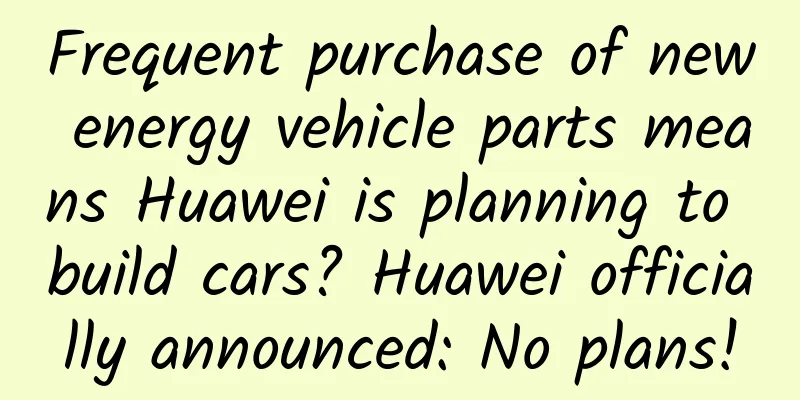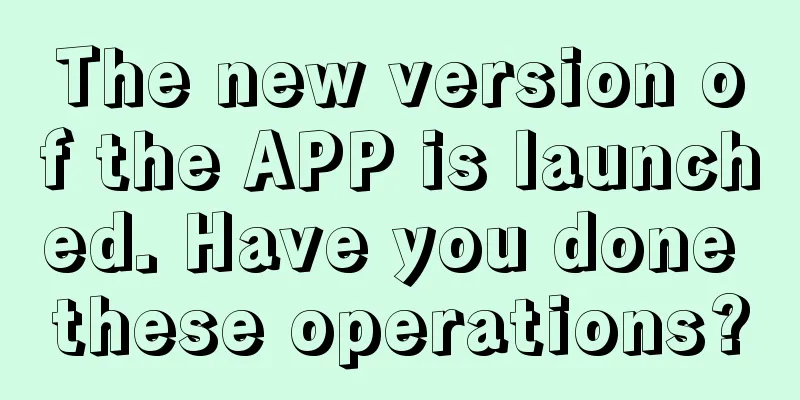How many sparks will occur when HTML5 meets Native?

|
A few days ago, there was a piece of news that attracted everyone's attention: WeChat is going to have an application account. Zhang Xiaolong revealed that he might set up a new WeChat application account in addition to subscription accounts and service accounts for App promotion. Most industry insiders believe that WeChat application accounts will be de-appified based on the WeChat platform, become a standardized service outlet, and provide developers with new technical interfaces. As a powerful drainage platform, WeChat's power is self-evident, and what the application account can provide must be beyond imagination. Just when product managers were thinking, if WeChat is going to have an application account, what should I do with my APP, the 2.0 version of SuperWebview released by APICloud is actually doing something similar. On the 12th, APICloud launched a new product SuperWebView and a new business model. The launch conference brought together more than 60 Internet technology experts, including CEOs and CTOs of major companies. A product launch conference was more like a feast of technical exchanges. The product concept of SuperWebView is to combine HTML5 with Native to provide new features that far exceed traditional HTML5 functions. SuperWebview can help native App teams solve the problem of "how to develop HTML5 pages with good experience and powerful functions in a short period of time." In fact, more than 70% of Chinese apps have embedded HTML5 technology, such as Taobao, Dianping, 58.com, Qunar, etc., which have embedded a lot of HTML5. However, the HTML5 embedded by many other companies still has a poor user experience and weak functions. APICloud CEO Liu Xin told reporters that the original intention of SuperWebView is to use building blocks to quickly build various applications to help developers improve development efficiency. According to analysis, the functions developed based on SuperWebview can bypass the review of the app store, realize rapid business adjustments and App updates, and greatly shorten the version iteration cycle from about 30 days to 7 days, improving the operation efficiency by 4-5 times. How is this done? Originally, based on the dynamic changeability of HTML5, with the help of the ability of web pages to dynamically obtain, it can make very small changes, and adjust the functions while ensuring that the interface is basically the same as that of traditional technology development. In this case, users can experience the best functions of the application without manually updating the application. Of course, if the application wants to achieve complex functions, it is definitely not a simple HTML5 interface that needs to be embedded, but a large amount of web page code is translated into a callable native API at runtime using the "semi-translation" principle, so that the functions and experience of the native APP can be obtained. It enables it to be embedded step by step in a series of applications such as Tmall, Taobao, 58.com, Meituan, etc., and then it will dynamically derive an OA, and then an ERP, CRM, etc., and the functions and experience are all the best. The principle of this semi-translation is different from the full translation of react native. Liu Xin said that APICloud actually has great opportunities to provide localized technical services to domestic developers and is more adaptable to the domestic ecological environment. All of the above is achieved with the help of the integration of Native and HTML5. This hybrid development technology can combine the technical advantages of both, which not only ensures the stability of functions, but also improves development efficiency and reduces the time cost of developers. No wonder Liu Xin seemed confident when talking about SuperWebView. He told reporters that there are more than 700,000 mobile application installation packages on the APICloud platform, and an average of more than 5,000 applications are generated on the platform every working day. We also learned from the press conference that APICloud, while insisting on providing core technologies for free, has launched "value-added services" to meet the higher-level service support needs of enterprises. Regarding the newly launched VIP service, Liu Xin said that this is the result of starting from user needs, providing special services for paying users while ensuring that the free user experience remains unchanged or even better. For example, 30-minute customer service response plans, 1-on-1 technical support, official online training, etc. are provided to paying users. Liu Xin said that if we work hard to build the ecosystem, one day the small pond will become a river or ocean, providing more services to future users. |
<<: IDC report: React Native changes the rules of the game for hybrid mobile app development
>>: Why are Silicon Valley CEOs obsessed with artificial intelligence?
Recommend
Dressing and Matching Training Camp
Dressing and Matching Training Camp Quick Match T...
“Seedless” grapes are actually produced by drugs? Can we eat them safely?
As a common fruit available in all seasons, grape...
Cardiologists remind: These symptoms are signs of blood vessel blockage and thrombosis! This is how to prevent
Vascular blockage is a very serious disease. Some...
Unveiled zone-free cleaning technology, Haier's smart cleaning ecosystem completes continuous upgrade
As humans delve deeper into the concept of the In...
In-depth interpretation of "TikTok Enterprise Blue V White Paper": What should TikTok Blue V do?
At the end of June, Douyin released the "Dou...
The secret of creating 100,000+ popular articles from the perspective of product thinking
Nowadays, public accounts have become one of the ...
The TikTok case becomes a real practice!
These two days, I suddenly found that many classm...
Out of control body - Is "obsessive compulsive disorder" really a disease? How to deal with obsessive compulsive disorder?
Author: Xu Wei, Zhongda Hospital Affiliated to So...
Practical example of setting up a bidding OCPC account
Many friends have not tried ocpc yet. In fact, oc...
Take a look at other people’s new marketing promotion methods for the Qixi Festival!
Take a look at other people's new marketing m...
Attention! Yersinia enterocolitica can cause illness. Check your refrigerator to see if you have it.
Bought something The first thing that comes to mi...
3D Cloud Disco AI Unmanned Live Cartoon Cracked Version, Contains Operation Video Detailed Tutorial
3D Cloud Disco AI Unmanned Live Cartoon Cracked V...
Leling SEO Training: How does SEO solve the problem of website retention rate? What are some good ways?
With the continuous development trend of the Inte...
"Blacklist" of daily chemical ingredients: Be careful with skin care products and cosmetics containing these ingredients!
Every time I post product reviews on skincare, co...
China Automobile Association: China's automobile production and sales will both exceed 30 million units for the first time in 2023
Recently, according to data released by the China...









